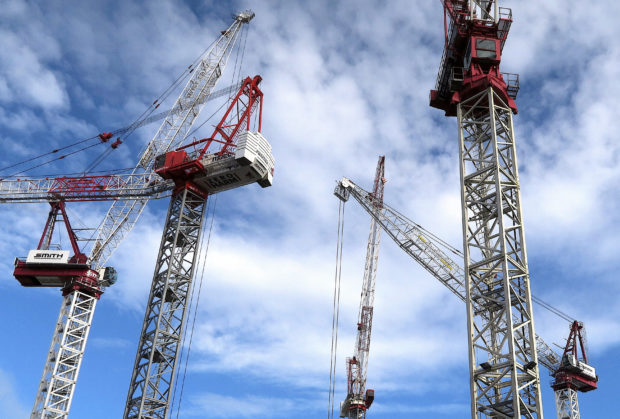Lawmaker calls for approval of new Philippine Building Act

(REUTERS file photo)
MANILA, Philippines — Surigao del Sur 1st District Rep. Romeo Momo Sr. is asking colleagues in the House of Representatives to approve a bill that would revise the 46-year-old National Building Code of the Philippines to ensure public safety during calamities.
In a statement, Momo said House Bill (HB) No. 8500, or the proposed new Philippine Building Act, would guarantee that establishments in the country are safer and are better-equipped — mainly since infrastructure projects comprise a considerable part of economic growth.
HB No. 8500 was passed on second reading last Wednesday, almost five months since the Committee on public works and highways headed by Momo approved the substitute bill.
“With the growth of our economy and the increase in our population, the pressures for land development and building construction continue to mount throughout the country. These tend to expose more structures and their occupants to natural disasters unless proper technical and regulatory safeguards are provided,” Momo said last Friday.
“We, therefore, implore our dear colleagues in the House to immediately pass the new Philippine Building Act. This landmark measure will make the buildings in the Philippines much safer for the people and more resistant to natural hazards for the benefit of the present and future generations,” he added.
Article continues after this advertisementAccording to Momo, HB No. 8500, if enacted, will update the country’s standards regarding the “planning, design, construction, occupancy, maintenance, and demolition of buildings” and even the streamlining of the building permit process.
Article continues after this advertisement“(This would) safeguard life and protect people from injury, ensure the health and well-being of the people who use them, protect property from physical damage, and reduce and manage hazards, exposures, and vulnerabilities,” he claimed.
In addition, the consolidated version of the bill would create a new system of classification of buildings and new requirements for zoning, fire prevention, environment protection, and design.
Likewise, a National Building Office tasked to craft rules, approve changes to building standards, and issue orders on demolition will be created.
Momo also said that the local building official would empower to order repairs, vacation, or demolition of buildings, including those constructed before 2005, deemed non-compliant with the new standards.
“When a building is declared to be dangerous, the Local Building Official shall order its repair, vacation, or demolition,” he added.
A new building code has been suggested before.
In 2013, renowned architect Felino Palafox Jr. said that the new building code should also consider a structure’s capability to withstand disasters, considering that the Philippines experiences calamities regularly.
Former senator Panfilo Lacson in 2019, also filed a similar bill establishing a Philippine Building Act, but it was not enacted due to time constraints and the COVID-19 pandemic hitting the country the year after.
For the 19th Congress, Senator Bong Go refiled the Philippine Building Act to provide a more effective regulation in planning, designing, and constructing buildings.
gsg/abc